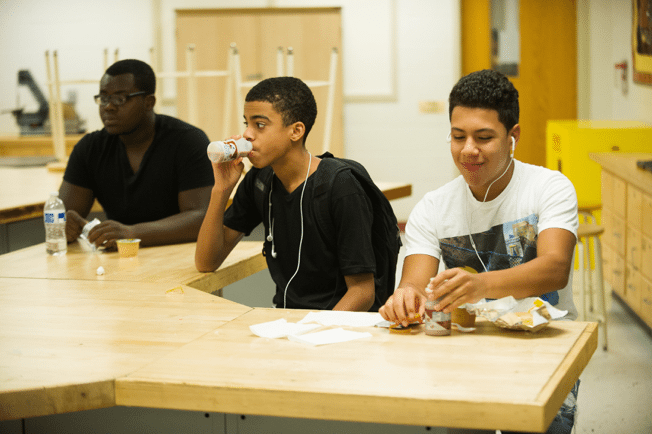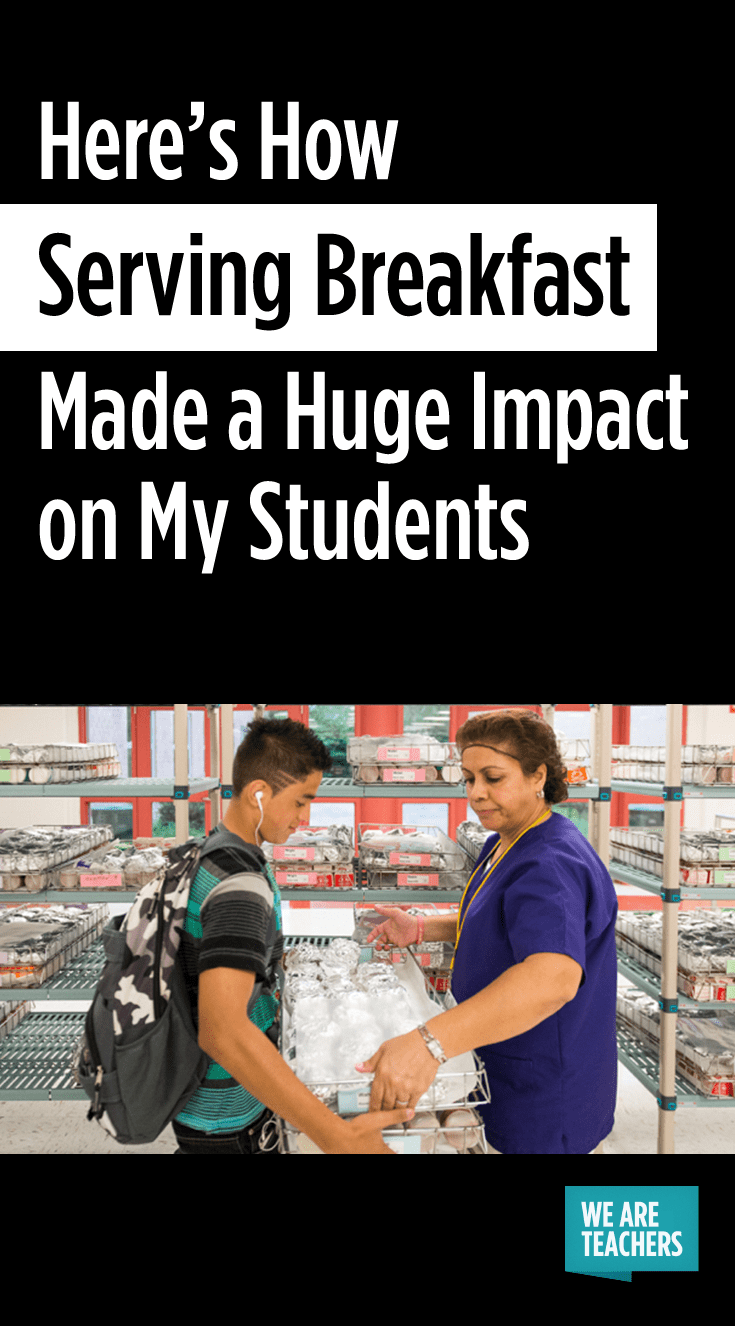I used to teach at a school where the first class started at 7:00 a.m. This meant most of my students were getting up before 6:00 a.m.
Those first couple of hours were tough. I’d have them do jumping jacks at the start of class just to wake them up and get the blood flowing. Aside from being sleepy, many of my students were hungry, too. For some, it was a lack of time. But for others, it was a lack of food in the morning.
A group of teachers went to the school board to address this issue, and soon after, the school district started a breakfast program at all the schools. It was a real success story for teachers to speak up and actually create change in their own community. Once the breakfast program was implemented, I saw a huge difference in my own students’ behavior. Here are some of those takeaways that still ring true today.
Students have SO MUCH more energy.
My students who missed breakfast, almost without fail, began to fade around 9:00 a.m. Heads went down on desks and participation was non-existent. It wasn’t hard to pinpoint the cause. An engine without fuel will not run, and the same was true for students who did not eat breakfast.
But once we had a program that made sure every student in the school had an opportunity to eat, participation and energy rose. Kids raised their hands more, the energy was up, and discussions were livelier. I got to spend less time waking kids up, and more time helping my students learn.
Breakfast has a long-term impact, too. When Share Our Strength did an analysis of the impact of school breakfast, they found that kids who ate breakfast had better test scores, had better attendance and fewer health problems, and were more likely to graduate high school. Learn more in No Kid Hungry’s 2017 Hunger In Our Schools Report.

Students pay better attention because they aren’t distracted.
Along with more energy, I also found my students were less distracted. It makes sense—if you’re not hungry, you won’t be distracted as easily. There’s a reason why students are reminded to eat a healthy breakfast the morning of a big standardized test. Hunger pangs can make academics hard to focus on.
Learn more in this report, Breakfast in the Classroom Myths.
Before free breakfast was offered to my students who could not afford it, texting under the desk, daydreaming, and other off-task behavior was more common in my class. It’d be easy to chalk this up to “kids being kids,” but I could often correlate this behavior to kids who I knew were missing meals regularly.
Hunger hurts, and this is usually enough to distract a kid from being interested in the pythagorean theorem or learning grammar.
Breakfast helps students warm up their brains.
When I talk to students in the morning, it is often the first time they speak in the day. And if those students have classes where they sit and do not speak (not my style), there is little to warm their brains up and enable them to think deeply.
When our school started serving breakfast, students were given a new social scene before school. Before they started their academic day, they socialized and interacted with friends. From there, they were able to go to class less like zombies who just rose from their beds, and more like students ready to continue interacting in a different setting. When kids warm up their brains, they are ready for teachers and equipped to learn.

Attendance rates actually increased with breakfast programs.
I used to have a student name Danny who skipped school about as often as he attended it. Danny’s parents did not make him go to school, and so most of the time he opted to stay home. My principal built a relationship with Danny on the days he came, and learned about his circumstances at home. She began to bring him breakfast every single day (before we started the official program at our school).
She used personal funds and money raised by the PTA. Danny’s attendance rate rose dramatically. This boy who received very little attention at home was provided for in a whole new way, and the results were amazing.
How big of an impact can this make? California Food Policy Advocates estimate that breakfast can improve attendance for three out of five low-income students. They estimate this could result in three million fewer absences because students are given breakfast before school. This is a pretty powerful argument to make breakfast a regular part of our students’ days.
Breakast gives us all fuel for the day.
Breakfast should be part of the day for all of us. I know from experience that if I am ever in a hurry to get to work and forget to eat breakfast, I will run down to the teachers lounge and snag a leftover muffin or buy something from the vending machine. Rarely will I just wait until lunch because I also need my energy.
It’s no different for my students. I too get distracted by hunger.
When schools ensure kids are eating, they become more than just an academic institution. They are an integral part of the community. Whether it’s free and reduced breakfast programs that provide for students in need, or an “everyone eats” program where all students get a free breakfast, schools become stronger. Let’s all be part of making our communities stronger. To learn how you can help and be an advocate for your students and school, get more teacher resources here or contact Brie Doyle, Senior Manager, National Partnerships at No Kid Hungry.



